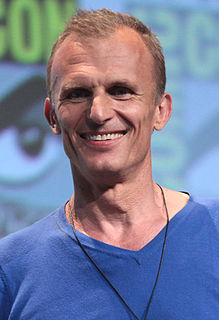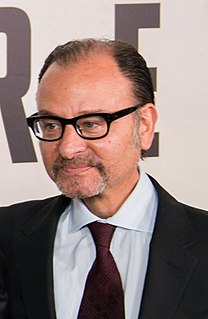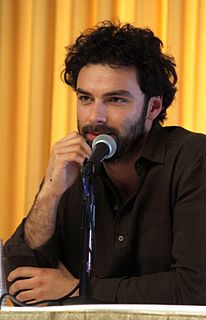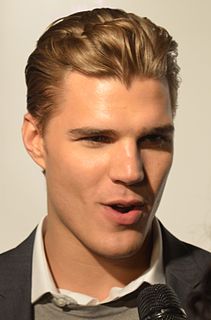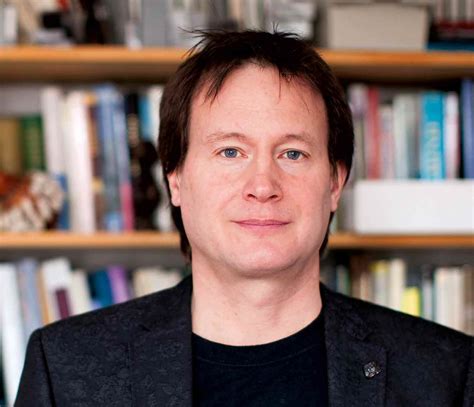A Quote by Richard Sammel
I love my situation as a spectator. The actors are only a little bit ahead of the audience. The audience discovers the episode when it's screened, but we actors only discover the episode when we get the script, two weeks ahead of shooting. Until then, we know nothing of the evolution of our characters.
Related Quotes
Sometimes during a show or a film, while you're shooting it, you'll think, "This is great, it's going to be fantastic, the script is incredible, and the actors are great, and everything is working out brilliantly." And then you see it, and you kind of go, "Oh god, it's not as good as I thought it was," and it doesn't get an audience to watch it. It only does a couple of festivals and then dies and whatever.
If I can get the audience to connect with the characters emotionally - and they love who they are, they love the larger-than-life situation that they're in, but most of all get the audience invested in the characters - then I always feel like I can sort of put them in the most outrageous circumstances, and the audience is okay to go with that.
I was talking to Shonda Rhimes the other day and I said, "I. Do. Not. Know. How. You. Do. This." While we're writing episode 10, episode 6 is shooting, episode 3 is in the edit, and episode 2 is in its color session...You've got seven episodes in different parts! It's a wild, wild, wild ride, which I thoroughly enjoyed. It was badass and amazing.
Our self illusion is so interwoven with personal memories that when we recall an event, we believe we are retrieving a reliable episode from our history like opening a photograph album and examining a snapshot in time. If we then discover the episode never really happened, then our whole self is called into question. But that's only because we are so committed to the illusion that our self is a reliable story in the first place.
Joe [Wright] reached out to me and sent me a treatment, and I said yes on the spot just from the treatment. Within six weeks, I was in Cape Town and there was a script [of Black Mirror episode 'Nosedive'], but I didn't realize until I received the full script that Rashida [Jones] and Michael [Schur] had worked on it. It's a particularly funny episode. Joe and I always looked at it as a satire; it has a lot of comedic elements to it.
